New to the world of podcasting? You might be wondering, well, what is a podcast? And how do they work? In this article I’ll cover what a podcast is, what they’re used for, and how to get started as a podcast listener or creator.
What is a podcast and how do they work?
A podcast is a digital audio “show” or program that you can download or stream from the internet on your smartphone, computer, or tablet and listen when it’s convenient for you.
A podcast “episode” is a single instance of a podcast, much like the episode of a TV show.
Here’s an example—an episode of our very own SPI Podcast, which has been running since 2010:
For beautiful, easy-to-embed podcast players like the above, look no further than Fusebox — the official podcast player of SPI! [Note: I am a compensated affiliate for Fusebox.]
Podcasts are an extremely popular form of media that’s growing quickly. The first podcasts were produced by individuals, but now they’re also made by companies, news outlets, and other organizations. Podcasting has become big business, with companies like Apple, Spotify, iHeartMedia, SiriusXM heavily invested in podcasting.
For the listener, podcasts are a versatile medium! The audio-only format of podcasts makes them easy to consume in various settings, such as while commuting, cooking, traveling, or working.
You can think of podcasts as “background” content, but you can also give them your full attention if you like.
Speaking of content, podcast topics can cover a huge range, from true crime to business strategies to parenting tips to comedy or kids’ content. If you have a topic in mind, there’s probably a podcast out there for it! And if there isn’t, that might mean an opportunity for you to start your own podcast on that topic!

Podcasts are typically available either in seasons with a set number of episodes or in an ongoing series. Our podcast Flops came out with an eight-episode season in 2021, while other SPI Media shows like AskPat 2.0 and The Community Experience were released weekly (until being sunsetted last year). The Smart Passive Income Podcast is still released every week on an ongoing basis.
Ready to learn podcasting the smart way?
The All-Access Pass has the resources you need.
How podcasts started (a brief history of podcasting)
Podcasts have their roots back in the 1980s, but they didn’t take off until the early 2000s. In September 2000, the company i2Go introduced a digital audio news and entertainment service called MyAudio2Go.com that allowed users to download news, sports, entertainment, weather, and music in episodic audio format. The following month, tech entrepreneur Tristan Louis proposed attaching sound and video files in RSS feeds (see below). This idea built steam over the next few years, and in 2004 the term “podcasting” emerged to describe this new way of distributing audio content. In 2005, Apple added a podcast subscription feature to iTunes 4.9 and launched a podcast directory in the iTunes Music Store.
Since then, the sky has been the limit for podcasting, with somewhere between 3 and 5 million podcasts in the world right now!
What are podcasts used for?
So what’s the point or purpose of a podcast? What are they good for? A whole lot!
For the listener, a podcast is a great way to learn about a given topic—and/or be entertained!—in a way that’s convenient to them. Podcasts are free (for the most part) and easy to find, and given their growing popularity, cover a wider and deeper range of topics than ever before.
For the podcaster, the uses and benefits of a podcast can be enormous. Podcasts are a great way to build and serve an audience by entertaining and/or educating listeners on a given topic.
One of the key advantages of a podcast for the podcaster is that you get to speak directly to people, using your voice. Your podcast episode may be heard by thousands or even millions of people, but for each listener, it’s just you and them.
It’s been said that podcasting is the best way to scale intimacy and make a direct connection with each of your listeners.
What is a podcast host and why do you need one? (How an RSS feed works)
Podcasts are made available to listeners via a Really Simple Syndication (RSS) feed.
An RSS feed allows content creators to publish notifications of new content such as blog posts or, of course, podcasts.
Here’s how that works. The podcast creator submits their podcast’s RSS feed to a directory, which makes it available to listeners via a podcast app or the creator’s website.
A podcast listener can receive new installments or episodes of a podcast automatically by subscribing to the podcast’s RSS feed in their chosen podcast app.
But how do you create your podcast’s RSS feed?
That’s where a podcast hosting platform (or podcast host for short) comes in.
A podcast host is a service that provides a place to store and distribute your podcast’s audio files via an RSS feed. The podcast host automatically generates the RSS feed for your podcast, and then submits it to podcast directories, such as Apple Podcasts, Google Podcasts, Spotify, and others.
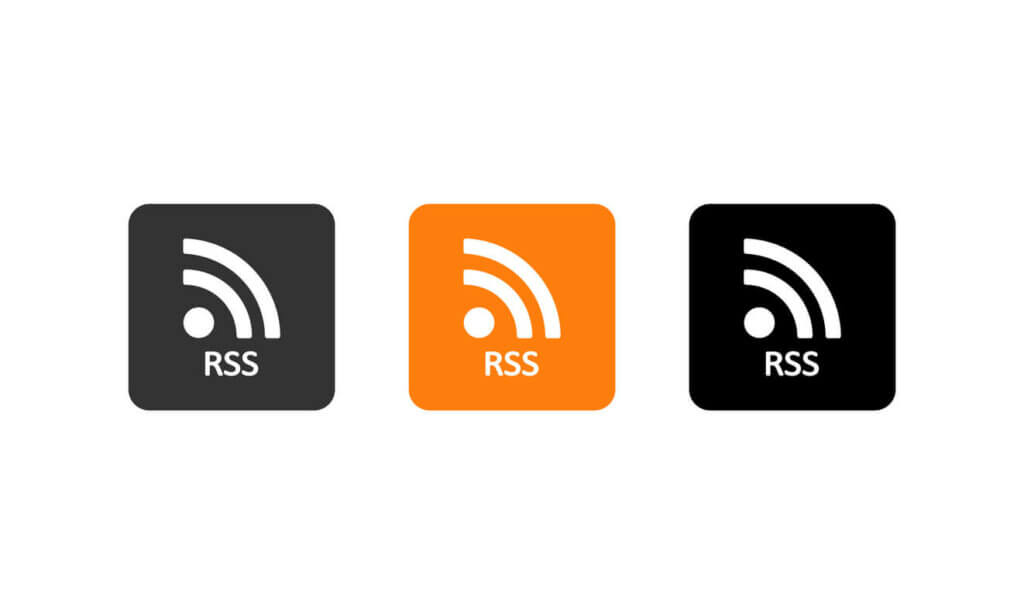
You might be thinking, Do I have to use a podcast host? Can I host my podcast on my website? The short answer is yes—but hear me out.
There are several benefits to using a podcast host instead of DIYing it. A podcast host can:
- Provide storage for your podcast episode files, and allow them to be downloaded by listeners.
- Automate the creation and syndication of your RSS feed to podcast directories.
- Offer built-in analytics, so you can see how your show is growing and which episodes are the most popular.
Yes, you can technically host your podcast’s RSS feed on your own website. And yes, most podcast hosts cost money, with those costs generally increasing as your show grows.
But for most creators, hosting your podcast on your own website is way more trouble than it’s worth.
You might save a few bucks, but in our opinion, the lack of analytics alone makes hosting your podcast on your website a bad choice.
Thankfully, you have plenty of options to choose from when it comes to podcast hosts. Our recommended platform is Fusebox, thanks to its ease of use and helpful features. [Note: I am a compensated affiliate for Fusebox.]
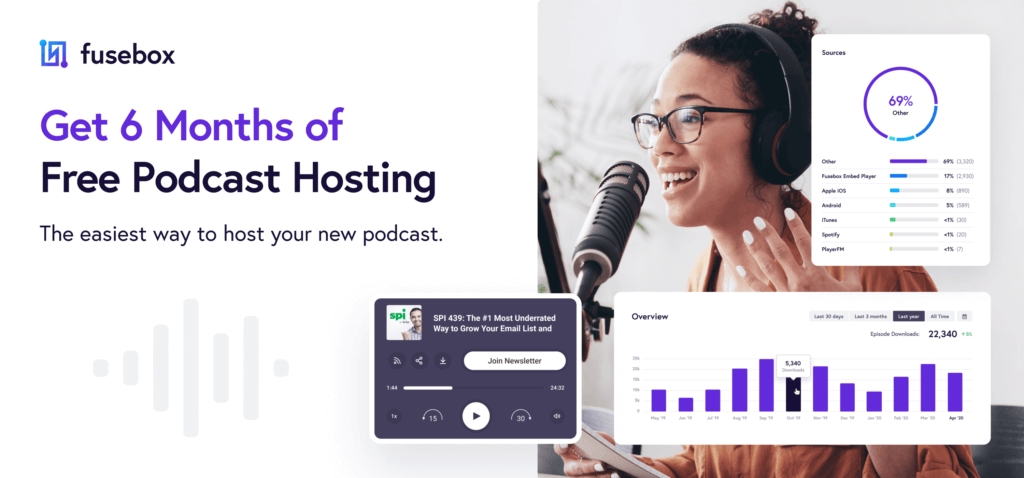
Other popular hosting platforms include Buzzsprout, Libsyn, Podbean, Anchor, and Blubrry.
It’s relatively easy to work with a podcast host. You set up an account on their website, where you can enter the details of your podcast, upload episodes, and explore options for monetizing your show. Some platforms charge a monthly fee (variable depending on how much content you publish), while others are free.
Last but not least, you might be thinking, Isn’t a podcast host also a person? Yes! A podcast host can also refer to the person who is the face and voice of a podcast. (For instance, Pat is the host of the SPI Podcast.) Glad we cleared that up. 😉
Types of podcasts and podcast examples
As a medium for entertaining and sharing information, podcasts can take many different forms! Here are some of the most common podcast formats, along with examples.
- Interview: A host invites one or more guests to discuss a given topic. This show format requires research and outreach to find guests for each episode. (The Smart Passive Income Podcast, Armchair Expert, Fresh Air)
- Solo Talking/Storytelling: As the name suggests, a single host “runs the show.” The time that would be spent on guest research and outreach for an interview show is instead directed toward research and preparation of the show’s content. (Hardcore History, Revolutions)
- Cohosted: A show with two or more hosts who can provide different personalities and perspectives and sometimes humorous banter. (Stuff You Should Know, My Favorite Murder, Flops, The Community Experience)
- Roundtable: An expanded version of a co-hosted podcast with more hosts who engage in conversations and banter around a given topic. (SmartLess, Pod Save America)
- Documentary: Similar to a TV documentary, this podcast format typically has a narrator, and can include interview segments, sound effects/music, and even scripted scenes. (Serial, Startup Podcast)
Note that many podcasts are a hybrid, incorporating elements of multiple formats. For example, the New York Times’ The Daily is a cohosted podcast that incorporates interviews.
Who makes podcasts?
Podcasts can be created by just about anyone, from an individual to a small team to a large company!
What is a podcast producer?
When it comes to podcasts, a producer is someone who works behind the scenes to make sure the show is as good as it can be. They typically wear several hats, and their duties may include finding guests, organizing the episode schedule, overseeing the recording and editing processes, promoting the show, and more.
How to listen to a podcast
How easy is it to listen to a podcast? Pretty darn easy! Here’s what you’ll need:
- A smartphone, computer, or tablet with an internet connection.
- A podcast app
You’ll need an internet-connected device, such as a smartphone, computer, or tablet to access podcasts. Since you’re already reading this post, I’m guessing you’ve got this one covered. 😉
Whether you’re searching for a specific podcast or want to search for a new one, a podcast app will come in handy. Here are some of the most popular ones:
Each of these apps can be downloaded to your device or accessed via the web.
So which one should you choose? To be honest, there’s not a ton of difference between them, especially if you’re just getting started as a podcast listener.
If you’re a Mac/iOS user, then Apple Podcasts is your go-to, and if you use an Android phone, then the Google Play Music app is the easiest option.
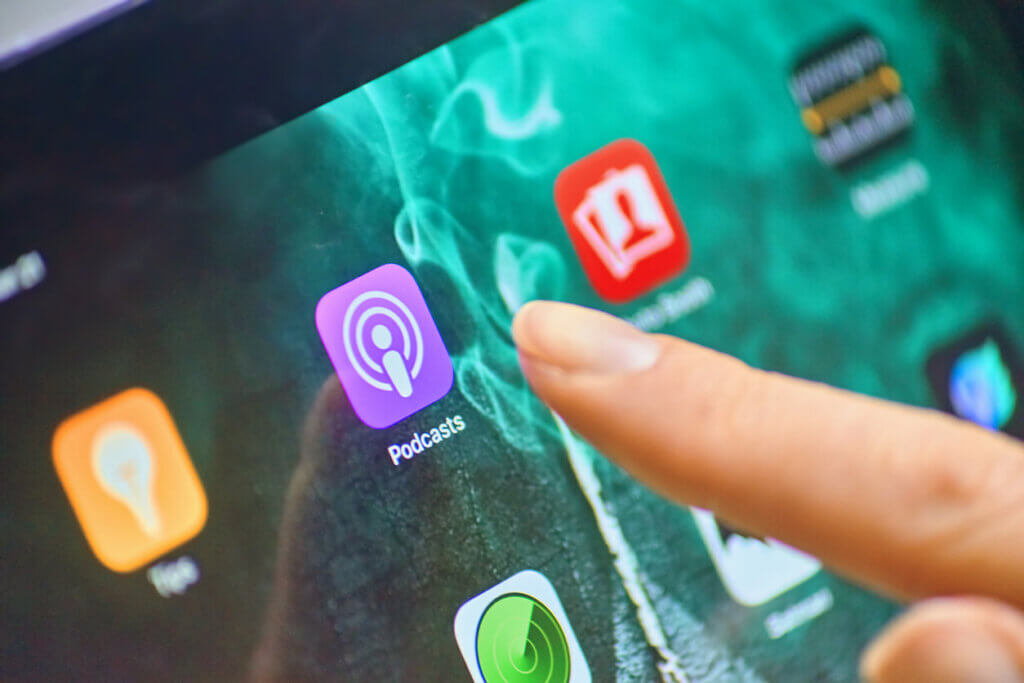
Each app also provides a podcast directory that you can search to find new shows. Many of these apps can even provide personalized recommendations based on the shows you listen to on the app.
If you find yourself turning into an avid listener of a large number of podcasts, you might find benefit from using an app like Pocket Casts, which is designed to filter and organize a large number of podcast subscriptions. But for 99 percent of listeners, most apps will do just fine.
Once you’ve found the podcast you want to listen to in your podcast app, you can either stream it or download it to your device to listen later. Your podcast app should also allow you to “subscribe” to a show so you’ll be alerted when new episodes are released.
Some podcast creators also make their podcast episodes available directly on their website via a web-based podcast player like Fusebox.
Here’s an example of how to use an embedded web player like Fusebox to play a podcast episode right on a webpage:
How to start a podcast
If you’re interested in how to start a podcast, you’re in the right place! At SPI, we have a ton of resources for first-time podcasters (and more advanced podcasters too, but let’s not get ahead of ourselves…).
In order to start a podcast, you need a few key ingredients:
That’s not all, though, and if you want the full scoop, check out our “How to Start a Podcast STEP-BY-STEP” guide.
It includes the lowdown on things like:
- Picking a podcast topic you can commit to
- Writing a compelling podcast description
- Choosing a podcast hosting service
- Recording your episodes
- And much more
The “How to Start a Podcast STEP-BY-STEP” guide makes starting your podcast easy and doable so that you can build your audience—and even start and scale a business with the help of your new show.
You can also check out our video guide to starting your podcast!
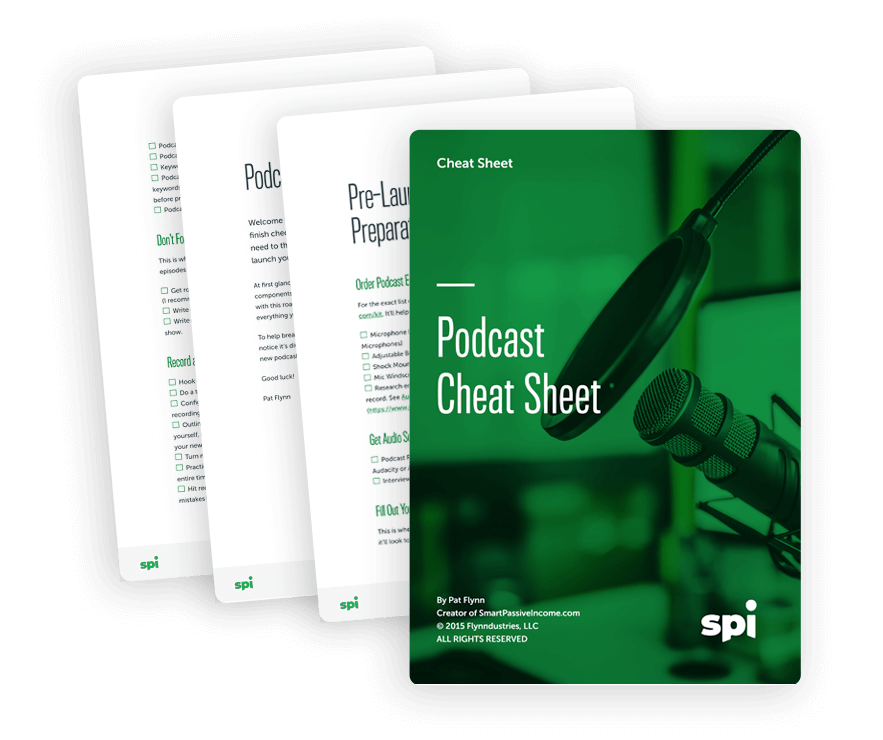
A free checklist for starting your podcast
Make sure you don’t miss a step! The Podcast Cheat Sheet gives you all the steps you need to start your show.
What is a podcast FAQ
Here are some commonly asked questions about podcasts, and our answers!
Why are podcasts called podcasts?
The word “podcast” is a portmanteau (combined word) of “iPod,” Apple’s original portable music player, and “broadcast.” Some people have also suggested “portable on demand” as a “backronym” for the word “podcast.”
Podcasts vs. radio: What’s the difference?
Are podcasts the same as radio shows? While podcasts and radio share a lot of similarities, since they’re both audio formats, podcasts are more versatile in a lot of ways. You can think of podcasts as the next “evolution” of the radio show.
Here are some of the key differences between podcasts and radio:
- Podcasts are usually edited, while radio is typically live.
- Podcasts can be streamed or downloaded on demand, while radio shows typically need to be listened to live. Radio stations are increasingly making their previously aired shows available online, but most radio content must be accessed when it goes live.
- Most radio content is aimed at a broad audience, while podcast content can be extremely niche.
- Most radio shows need to fill a specific time block, whereas podcast episodes can be any length.
- Radio shows typically have higher production costs, so they contain advertisements to help offset these costs. While podcast advertising is a growing industry, many podcasts don’t include ads because the cost barrier to entry for podcasting is so much lower than for radio.
Are podcasts free to listen to?
One of the best things about podcasts is that they are usually free to download and listen to. Yes, you’ll need a device to listen to them and an internet connection to download them, but the content itself is generally free of charge.
In recent years, some podcasters have begun creating additional paid content for their subscribers. These paid podcasts are becoming increasingly popular, although free podcasts are still a lot more common.
What is a podcast network?
A podcast network is a collection of podcasts under the umbrella of a single company, which produces, distributes, and/or makes those podcasts available to advertisers. Podcast networks can provide exposure and revenue for podcast owners and are a great option to consider once your podcast has grown a bit.
Some podcast networks are focused on a single theme, while others accept podcasts across a range of topics. The biggest podcast networks include iHeartRadio, Wondery, PodcastOne, HubSpot Podcast Network, and Audacy.
What is a video podcast?
Video podcasts are an increasingly popular form of podcasting. As the name suggests, they incorporate video and audio, allowing listeners to see and hear your content. Adding video to your podcast is typically more work, but it can help expose your show to a wider audience through platforms like YouTube and TikTok.
What equipment do you need to start a podcast?
As mentioned above in “How to Start a Podcast,” a microphone is the most important piece of equipment you’ll need to start your own show. However, there are a few other pieces of tech to consider:
- A desktop microphone stand
- A boom arm and shock mount to reduce unwanted vibrations
- A pop filter to reduce plosives (harsh sounds from certain syllables) in your recordings
- Software for recording and editing, such as GarageBand or Audacity
- Sound dampening materials to reduce room echo
Do podcasters make money from their shows?
They definitely can, and many of them do!
The most common way podcasts make money is through advertising or sponsorships. You can also use affiliate marketing to promote products on your show and earn a commission when someone purchases them using your link.
Our Amp’d Up Podcasting course — available exclusively to our community members — is designed to help podcasters grow and better monetize their shows while also reducing production time.
Are you ready to start your podcasting journey?
I hope this primer on podcasts was helpful! Maybe you’re inspired to go find a new show to subscribe to, or even become a podcaster yourself!
Before you leap, however, it’s important to weigh the pros and cons of podcasting.
Pros and cons of starting a podcast
The benefits of having a podcast can be numerous. A podcast can help you:
- Grow your brand or business
- Meet new people
- Develop new income streams
- Expand your audience
At the same time, podcasting may not be for everyone. It takes time, energy, commitment, and resources to start and maintain a podcast. To be successful, you need to produce a high-quality show and publish it regularly.
More resources for the aspiring podcaster (or just the pod-curious)
If the idea of starting a podcast is still exciting to you, great! We’ve got lots of helpful resources if you’re ready to keep learning about podcasts and what they can do to help you grow your business and connect with your audience.
If you’re interested in starting your own podcast, our How to Start a Podcast Guide gives you practical next steps.
But if you’re ready to start your podcast in the most streamlined way possible, our Power-Up Podcasting® 2.0 course is for you. It’s a step-by-step guide to launching a successful podcast that gets found and grows your online brand. You can take the course as part of our All-Access Pass — membership gets you all our courses and the support of a vibrant learning community to guide and motivate you towards podcasting success.
You can also explore The Smart Passive Income Podcast and read more about podcasting on the blog.
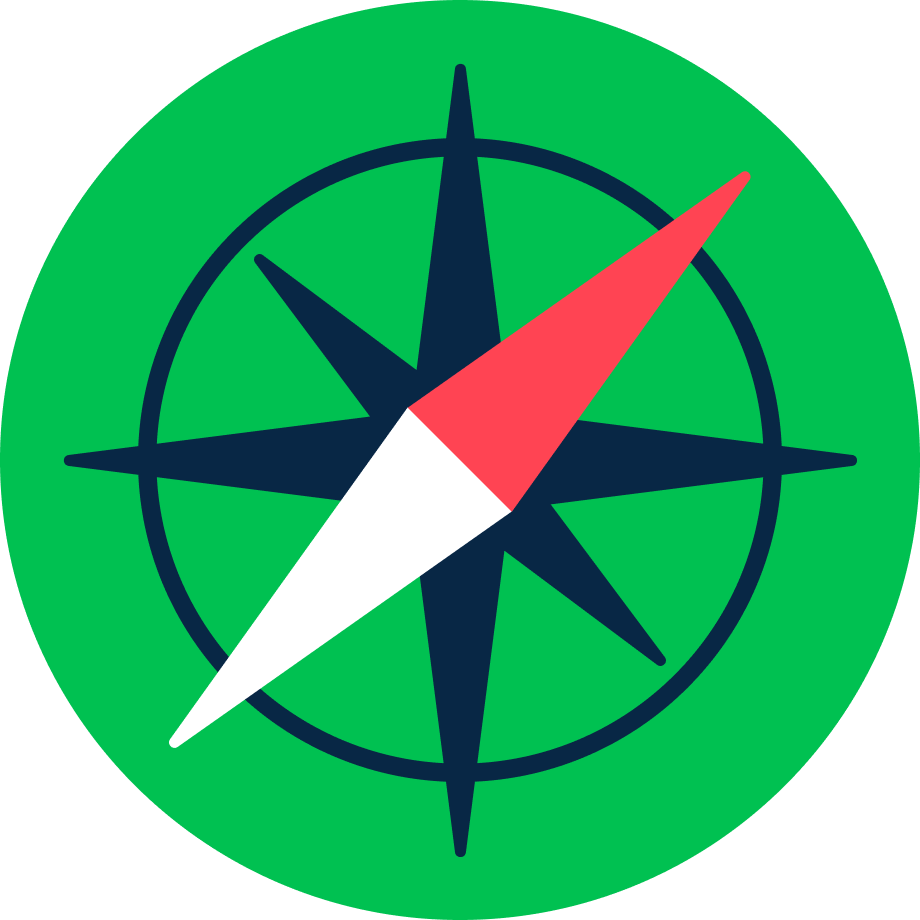
Ready to learn podcasting the smart way?
The All-Access Pass community has the courses, resources, support, and accountability you need.





